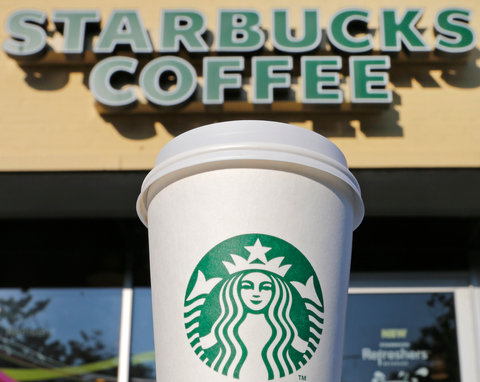 Charles Krupa/Associated PressA Starbucks outlet in Cambridge city in Massachusetts, July 26, 2012.
Charles Krupa/Associated PressA Starbucks outlet in Cambridge city in Massachusetts, July 26, 2012.
MUMBAI–Starbucks will open its debut store in India by the end of October, the company said Friday.
The American chain’s first shop here will be located in Mumbai’s iconic Horniman Circle neighborhood, in South Mumbai’s Fort district. The area is home to expensive shops, including a Hermes store, and numerous offices and bank headquarters as well as the Horniman Circle Gardens park, which hosts music and culture festivals.
“We’re extremely excited about the opportunity that this location presents to establish the Starbucks brand here in the Indian market,” John Culver, president of Starbucks China and Asia Pacific, said during a press conference in Mumbai on Friday. “The plans to open in the Indian market are right on track.”
The store will be located in the Elphinstone building, a heritage property owned by Tata Sons, part of the Tata Group conglomerate. Starbucks is partnering in India with Tata’s Global Beverages, which describes itself as “Asia’s largest coffee plantation company.”
In a first for the coffee chain, all the coffee sold in Starbucks stores across India will be locally sourced and roasted at a facility in India, executives said Friday.
Starbucks joins international fast food chains such as McDonalds, Taco Bell, and Dunkin Donuts, who have entered India because of a large demographic of young people with rising in income levels and international exposure. India has seen a rise in the coffee shop culture over the past few years as chains like Costa Coffee, The Coffee Bean and Tea Leaf have opened stores. The announcement comes at a time when the Indian government is pushing for more foreign investment in the country.
Starbucks had initially planned to open its first stores in India in mid-2011, but there was a delay in acquiring real estate, executives said. In January, the company announced a 50-50 partnership with Tata Global Beverages, and said it would invest $80 million in India and open 50 stores by the end of the year. Mr. Culver did not provide more detail about the company’s planned investment in India, but said that the business was “very well funded” and that the company was looking at the India market as long-term investment.
Avani Saglani Davda, 33, a Tata Group executive, will head the joint venture, the companies said Friday.
Like other international food chains entering India, Starbucks will alter its menu to suit Indian tastes. There will also be one unique dish available in each of the Starbucks stores in each city where it opens in India, executives said. “We are going to make a huge difference in the way that coffee houses are perceived in India,” said Ms. Davda.
Mr. Culver said the first store in New Delhi was planned for early next year, and that the company has hired and is currently training 60 people. “We’re going to be very thoughtful on how we grow, but at the same time we’re going to look at accelerating growth and capturing the opportunity that exists for us here in India,” he said.
India is the latest overseas market for the Seattle, Washington-based coffee chain. Starbucks has operated outside North America since 1996, when it opened in Tokyo, Japan, and today has more than 17,000 stores in 57 countries around the world. The company has been in mainland China for more than a decade, and now has more than 500 outlets there, but has courted controversy in some cases. A Starbucks outlet that opened in 2000 in Beijing’s nearly 600-year-old Forbidden City was shuttered seven years later, after protestors said it was denigrating the historical site. Still, Starbucks said in April that it expects China will be its second-largest market by 2014, and that it plans to have 1,500 stores across China by 2015.
In Europe, Starbucks has struggled in some countries, particularly France. The chain started a multimillion dollar makeover this year in Europe to lure patrons raised on café culture into its stores, adding edgy architecture, stages for poetry readings and chandeliers, as well as changing its coffee roast.
Article source: http://india.blogs.nytimes.com/2012/09/28/starbucks-makes-long-awaited-india-entry-in-south-mumbai/?partner=rss&emc=rss